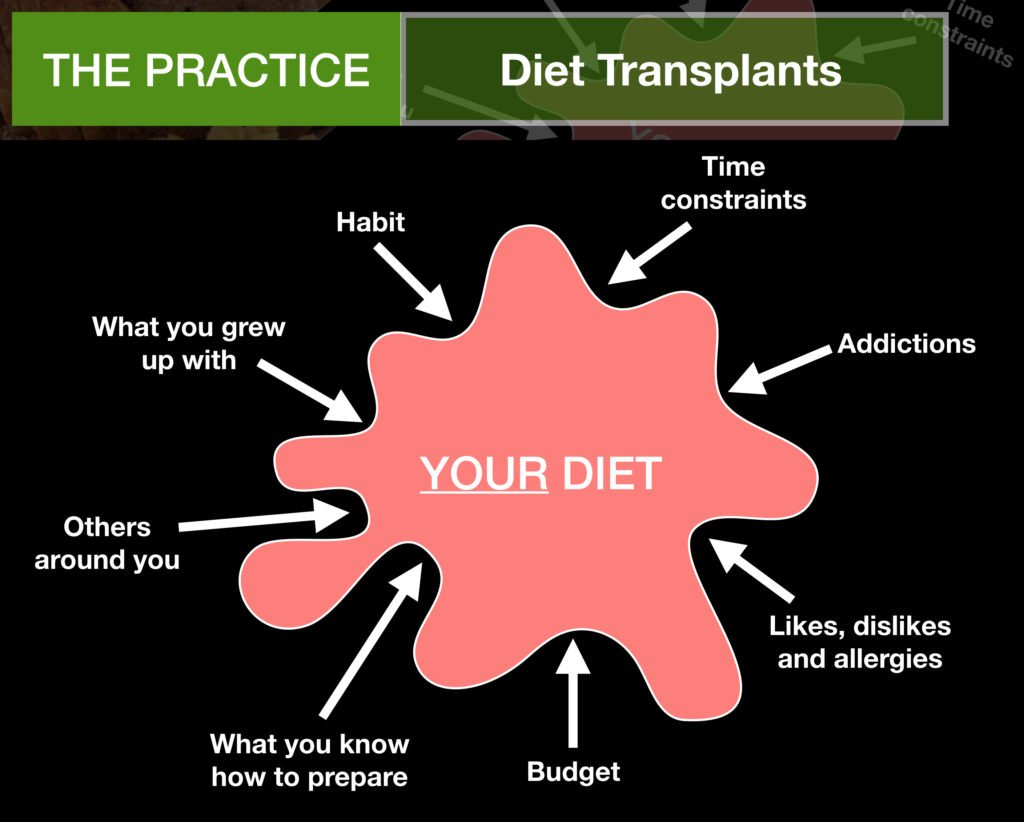
We’re all on a diet!
The clinical meaning of the word diet is the description of what you eat and drink and hence we all have one! The word diet has however been synonymous with a way of eating (usually) to lose weight or at the very least exclude or reduce something like calories or a particular food type, for example.
Each of our daily diets is shaped by many factors – what we like, what we can afford, what we know how to prepare, what we can get from the supermarket, our allergies, our childhood associations with comfort, what others in our household enjoy and so on.
It is therefore perilous to suddenly and radically change your diet just because you see something on the internet or you read something in a magazine. The influences that have shaped your diet over your life so far, will still be there putting pressure on your new transplanted diet. Willpower may overcome those influences for a while but eventually the stress and conflict caused by transplanting someone else’s diet will become over-bearing and the transplanted diet fails.
This is the all too often mode of failed diets that we all have experienced.
Far better to progressively evolve your diet in chosen directions, letting small dietary changes be incorporated gradually. This is a sustainable model of dietary change.
